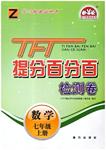题目内容
【题目】An environmental group called the FoodCommission is unhappy and disappointed because of the sales of bottled waterfrom Japan. The water, it angrily argues in public, has traveled 10,000 “foodmiles” before it reached Western customers. Transporting water halfway acrossthe world is surely the extremely stupid use of fuel when there is plenty ofwater in the UK. It is also worrying that we were wasting our fuel by buyingprawns from Indonesia (7,000 food miles ) and carrots from South Africa (5,900food miles).
Counting the number of miles traveleddone by a product is a strange way of trying to tell the true situation of theenvironmental damage due to industry. Most food is transported around the worldon container ships that are extremely energy efficient. It should be noticedthat a ton of butter transported 25 miles in a truck to a farmers’ marketdoesn’t necessarily use less fuel on its journey than a similar producttransported hundreds of miles by sea. Besides, the idea of “food miles” ignoresthe amount of fuel used in the production. It is possible to cut down your foodmiles by buying tomatoes grown in Britain rather than those grown in Ghana. Thedifference is that the British ones will have been raised in heated greenhouseand the Ghanaian ones in the open sun.
What is the idea of “food miles” doesprovide, however, is the chance to cut out Third World countries from FirstWorld food markets. The number of miles traveled by our food should, as I seeit, be regarded as a sign of the success of the global trade system, not a signof damage to the environment.
(1)The Food Commission is angry because it thinks that ________.
A.UK wastes a lot of money importing food products
B.some imported goods causes environmental damage
C.growing certain vegetables causes environmental damage
D.people wasted energy buying food from other countries
(2)The phrase “food miles” in the passage refers to the distance ________.
A.that a food product travels to a market
B.that a food product travels from one market to another
C.between UK and other food producing countries
D.between a Third World country and a First World food market
(3)By comparing tomatoes raised in Britain and in Ghana, the author tries to explain that ________.
A.British tomatoes are healthier than Ghanaian ones
B.Ghanaian tomatoes taste better than tomatoes ones
C.cutting down food miles may not necessarily save fuel
D.protecting the environment may cost a lot of money
(4)From the passage we know that the author is most probably ________.
A.a supporter of free global trade
B.a member of a Food Commission
C.a supporter of First World food markets
D.a member of an energy development group
【答案】
(1)D
(2)A
(3)C
(4)A
【解析】本文为议论文,作者论述把环境的破坏归因于产品从生产到市场的距离是相当的奇怪,相反的产品从生产到市场的公里数是世界贸易体系成功的标志。
(1)D 考查细节理解。在第一段第一句找到题目关键词“Food Commission”,第二句找到关键词“angrily”向下继续研读,根据第三,第四句“Transporting water halfway across the world is surelytheextremely stupid use of fuel when there is plenty of water in the UK. It isalso worrying that we were wasting ourfuel by buying prawns from Indonesia(7,000 food miles ) and carrots from South Africa (5,900 food miles).”既然英国有大量的水资源,那么跨越半个地球把水运到英国肯定是极愚蠢的燃料利用。我们浪费燃料来从印度尼西亚从南非购买胡萝卜是令人担忧的。故选D。
(2)A考查细节理解。从第一段第二句“has traveled 10,000 “food miles” before it reached Westerncustomers.”到达西方消费者之前,已经走了一万公里的“食物里程”。可见“food miles”指的是到达消费市场的路程。故选A。
(3)C考查细节理解。从第二段第三句中“market doesn’t necessarily use less fuel”第四句“.Besides, the idea of “food miles” ignores the amount offuel used in the production. 可知,除此之外“食物公里”的观点忽视了在生产过程中的燃料耗费量,减少食物里程在珍惜燃料方面是不必的。故选C。
(4)A考查推理判断题。从第二段第一句“Counting the number of miles traveled done by a product isa strange way of trying to tell the true situation of the environmental damagedue to industry.”和第三段第二句“The number ofmiles traveled by our food should, as I see it, be regarded as a sign of thesuccess of the global trade system, not a sign of damage to the environment.照我看来,食物的公里数应该被认为是经济全球化的一个成功的标志而不是环境破坏的标志。可知,作者是贸易全球化自由化的支持者。故选A。

 提分百分百检测卷系列答案
提分百分百检测卷系列答案【题目】选词填空。
communicate with, more than, the number of, be based on, |
(1)Mr. Zhang is always helping us and all of my classmates think that he is our teacher.
(2)He walked slowly his bad leg.
(3)Because of the flood, homeless people has increased rapidly.
(4)If you want to do this job well, you must speak English well.
(5)If you speak English, you can business people from other countries.
(6)This novel the family history of the writer.
(7)The little boy to his mother in the kitchen and handed her a piece of paper.
(8)It is reported that many new schools are being built in this area.
(9)Most Americans like eating fast food, hamburgers and French fries.
(10)They tried their best to the chance that their school offered to study hard.